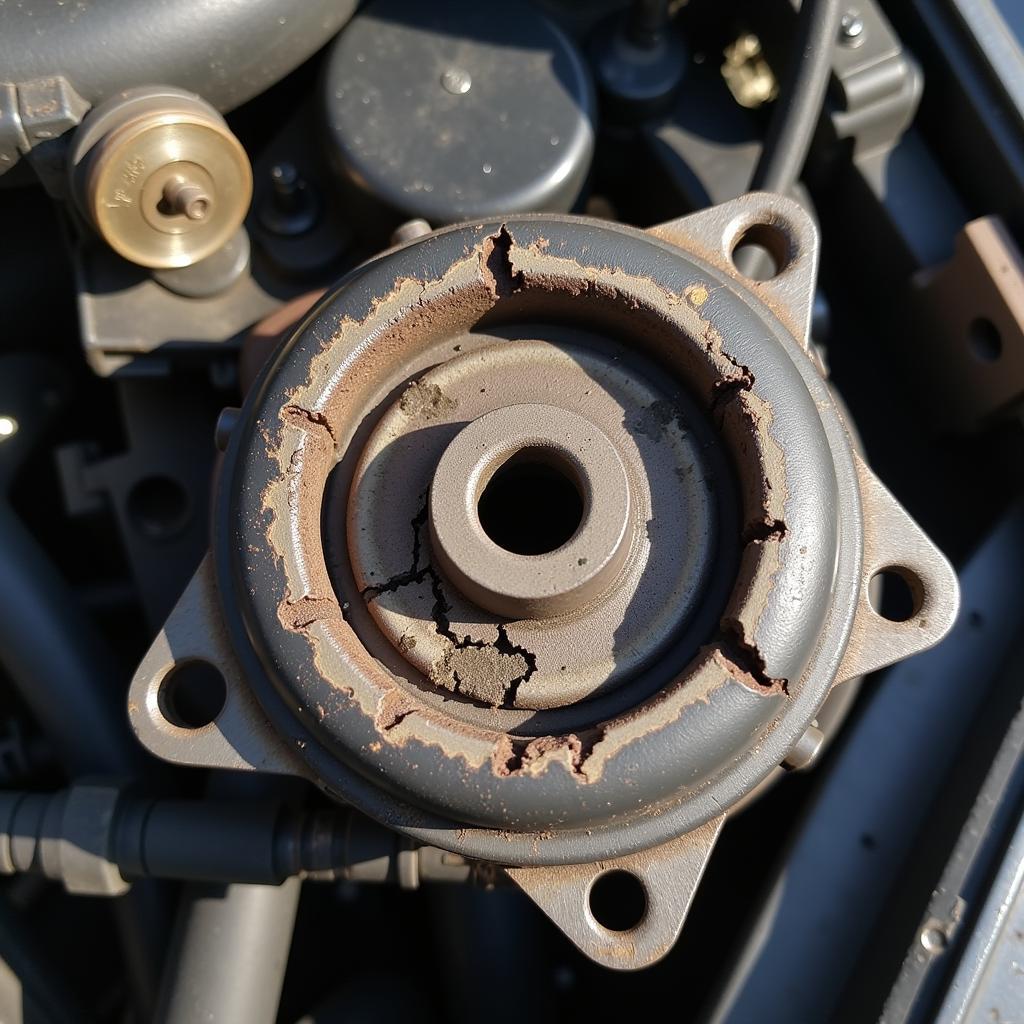Car vibrations can be a frustrating and concerning experience for any driver. It often signals an underlying issue with your vehicle that needs addressing. Whether it’s a mild shaking or a violent shudder, understanding the cause of these vibrations is crucial for effectively diagnosing and fixing the problem. This article delves into common reasons why your car might be vibrating, empowering you to make informed decisions about your vehicle’s maintenance.
Common Culprits Behind Car Vibrations
Several components can contribute to car vibrations, each causing a distinct type of shaking or shuddering. Let’s explore some of the most prevalent culprits:
1. Tire Issues: The Foundation of Smooth Driving
Your tires are the first point of contact between your car and the road, making them a prime suspect for vibrations.
- Unbalanced Tires: When tires aren’t properly balanced, they can cause vibrations, particularly noticeable at higher speeds. This is often due to uneven weight distribution within the tire and wheel assembly.
- Misaligned Wheels: If your wheels are misaligned, your car might pull to one side or vibrate. This happens because the tires aren’t rolling in a straight line, creating friction and shaking.
- Damaged Tires: A bulge, bubble, or flat spot on a tire can also cause vibrations. These imperfections disrupt the tire’s shape and lead to an uneven rolling surface.
2. Worn-Out Engine Mounts: The Engine’s Unsteady Foundation
Engine mounts are crucial for minimizing engine vibrations and keeping things smooth within your car.
- Worn or Damaged Mounts: Over time, engine mounts can wear out, crack, or become damaged. This can cause excessive engine vibrations to be felt throughout the vehicle, especially during acceleration or idling.
 Worn Engine Mounts
Worn Engine Mounts
3. Brake Problems: Vibrations When Stopping
Vibrations that occur mainly while braking often point to problems with the braking system.
- Warped Brake Rotors: Brake rotors (discs) can warp due to excessive heat or wear, resulting in a pulsing sensation when applying the brakes.
- Worn Brake Pads: Thin or unevenly worn brake pads can also cause vibrations, especially as they come into contact with the rotors.
4. Axle Issues: Impacting Wheel Rotation
Axles are essential for transmitting power from the engine to the wheels, and problems with them can manifest as vibrations.
- Bent or Damaged Axle: A bent or damaged axle, often resulting from an impact or accident, can cause vibrations that worsen with speed.
- Worn CV Joints: Constant velocity (CV) joints allow for smooth wheel rotation while turning. Worn CV joints can create vibrations, particularly noticeable when accelerating while turning.
Diagnosing the Vibrations: Location and Conditions
To pinpoint the source of the vibrations, pay attention to these factors:
- Location of Vibration: Does it originate in the steering wheel, the seat, the gas pedal, or the entire vehicle?
- Speed and Conditions: When do the vibrations occur? At low speeds, high speeds, while accelerating, braking, or idling?
Don’t Ignore the Vibrations: Potential Consequences
Ignoring car vibrations can lead to more severe problems and costly repairs down the road. For example:
- Safety Hazards: Severe vibrations can affect your car’s handling and increase the risk of accidents.
- Component Damage: Continued driving with vibrations can exacerbate existing issues and damage other related components.
Seeking Professional Help: When to Call in the Experts
While some vibration issues can be addressed with simple DIY solutions, others require the expertise of a qualified mechanic. If you’re unsure about the cause of the vibrations or lack the experience to fix them, it’s always best to consult a professional.
“Addressing car vibrations early is essential for ensuring a safe and enjoyable driving experience. Don’t hesitate to seek professional help if you’re unsure about the cause or solution,” says John Smith, Senior Automotive Engineer at XYZ Auto Services.
For persistent or worsening vibrations, consider reaching out to the experts at AutoTipPro. Our team of experienced mechanics can diagnose the root cause of your car troubles and provide reliable, lasting solutions.
Contact us at +1 (641) 206-8880 or visit our office at 500 N St Mary’s St, San Antonio, TX 78205, United States.
FAQs
1. Can low tire pressure cause car vibrations?
Yes, significantly low tire pressure can cause vibrations, especially at higher speeds. It’s essential to maintain the recommended tire pressure for optimal performance and safety.
2. How often should I get my tires balanced and rotated?
It’s generally recommended to get your tires balanced and rotated every 5,000-7,500 miles, or as recommended by your vehicle manufacturer.
3. Can a bad spark plug cause vibrations?
While uncommon, a severely worn or faulty spark plug can cause engine misfires, potentially leading to vibrations.
4. Are car vibrations always a sign of a serious problem?
Not necessarily. Some vibrations, like those felt on rough roads, are normal. However, persistent or worsening vibrations should be inspected by a mechanic.
5. How much does it cost to fix car vibrations?
The cost of repair depends on the underlying cause. Simple tire balancing might cost a few dollars per tire, while more complex repairs like replacing axles or engine mounts can be significantly more expensive.




Leave a Reply